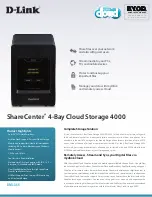
82540EP/82541(PI/GI/EI) & 82562EZ(EX) Dual Footprint Design Guide
6
lists the approved crystals for use with the 82541PI C0 stepping.
3.1.1.1
Vibration Mode
Crystals in the frequency range listed in
are available in both fundamental and third
overtone. Unless there is a special need for third overtone, use fundamental mode crystals.
At any given operating frequency, third overtone crystals are thicker and more rugged than
fundamental mode crystals. Third overtone crystals are more suitable for use in military or harsh
industrial environments. Third overtone crystals require a trap circuit (extra capacitor and inductor)
in the load circuitry to suppress fundamental mode oscillation as the circuit powers up. Selecting
values for these components is beyond the scope of this document.
3.1.1.2
Nominal Frequency
Intel® Ethernet controllers use a crystal frequency of 25.000 MHz. The 25 MHz input is used to
generate a 125 MHz transmit clock for 100BASE-TX and 1000BASE-TX operation; 10 MHz and
20 MHz transmit clocks, for 10BASE-T operation.
3.1.1.3
Frequency Tolerance
The frequency tolerance for an Ethernet physical layer device is dictated by the IEEE 802.3
specification as ±50 parts per million (ppm). This measurement is referenced to a standard
temperature of 25° C.
Note:
Intel recommends a frequency tolerance of ±30 ppm.
Table 4. 82541PI Recommended Crystals
Manufacturer
Manufacturer's Part Number
Raltron (<20
Ω
ESR and +/-30 ppm)
AS-25.000-20-F-SMD-TR
Citizen
HCM family that meets the
crystal specifications.
TXC
6C25000131















































